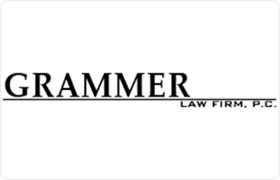Nichols Criminal Lawyer, South Carolina
Sponsored Law Firm
-
 x
x

Click For More Info:
-
Grammer Law Firm, P.C.
1700 Oak St Conway, SC 29526» view mapCriminal Proudly Serving Horry County
You need an attorney with criminal defense knowledge who will vigorously protect your rights and interests.
800-957-8401
Edward W. Whittington
Power of Attorney, Income Tax, Wrongful Termination, DUI-DWI
Status: In Good Standing
Marcus LeFond Woodson
Government, Employment, Divorce & Family Law, Criminal
Status: In Good Standing
Michael Edward Suggs
Power of Attorney, Immigration, Child Custody, Criminal
Status: In Good Standing
 William Grammer Myrtle Beach, SC
William Grammer Myrtle Beach, SC AboutGrammer Law Firm, P.C.
AboutGrammer Law Firm, P.C. Practice AreasExpertise
Practice AreasExpertise
